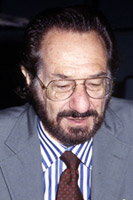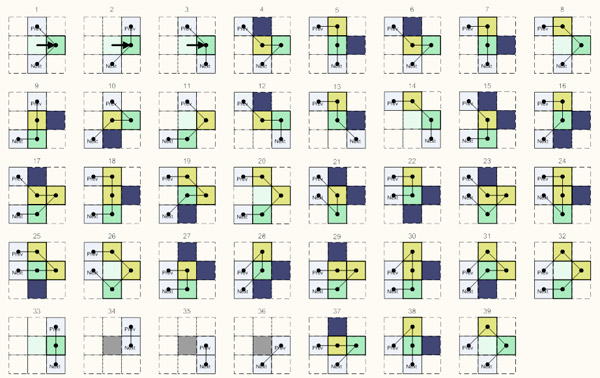Ed Fredkin |
|
|
Ed Fredkin (1934 –) has had a distinguished career both in the commercial sector as well as academia. He held professorships at MIT in Electrical Engineering and Boston University in physics. In the business world, Fredkin contributed mostly to the fields of computer science and artificial intelligence. He was noted for designing the first interrupt systems and was a pioneer in reversible computing concepts. Fredkin wrote a paper in 2003 called “An Introduction to Digital Philosophy,” which he refers to as a continuation of earlier work on “digital mechanics.” The core argument in the paper is that, at its most fundamental level, reality is digital. Therefore, laws of biology and physics ultimately derive from behavior of digital systems, specifically cellular automata (a concept developed originally by computer pioneer John von Neumann). |
In this view, fundamental particles are ultimately just patterns of information changes, and since everything is composed of fundamental particles, everything is digital at its core. Like all digital philosophers, Fredkin believes that both time and space are granular. He carries the concept a bit further and argues that the universe itself is a computer.
In his view of digital physics, Fredkin identifies four laws:
1. Information is conserved 2. The fundamental process of nature must be a computation-universal process 3. The state of any physical system must have a digital representation 4. The only kind of change is that caused by a digital informational process
As he describes the nature of the universe, it is fully deterministic. As such, there appears to be no room for consciousness. He talks about “pseudo free will” as an apparent feeling that we have free will, but ultimately appears to believe that consciousness derives from the digital processes.
External links:
|
|
Cellular automata |
|
| More Philosophers | |


